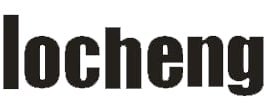The Importance of Dielectric Strength Values
Dielectric strength is a critical property to consider when selecting heat shrink materials for electrical applications. It measures the maximum voltage a material can withstand without breaking down. Higher dielectric strength values indicate better insulation properties, which are essential for preventing electrical failures and ensuring safety in various environments.
Factors Affecting Dielectric Strength
Several factors can impact the dielectric strength of heat shrink materials, including material composition, thickness, and temperature. Materials with higher molecular weight and greater crystallinity tend to have higher dielectric strength values. Additionally, proper temperature management is crucial to maintaining optimal dielectric properties, as excessive heat can degrade insulation performance.
Comparing Different Heat Shrink Materials
Various types of heat shrink materials are available on the market, each with unique dielectric strength values. Common options include polyolefin, PVC, and fluoropolymer heat shrink tubing. While polyolefin offers good dielectric properties at a lower cost, fluoropolymer materials boast superior dielectric strength values, making them suitable for high-performance applications.
Application Considerations for Dielectric Strength
When choosing heat shrink materials based on dielectric strength values, it is essential to consider the specific requirements of the application. For instance, high-voltage applications may demand materials with significantly higher dielectric strength values to ensure reliable insulation. Understanding the operating conditions and voltage levels is crucial for selecting the most appropriate heat shrink material.
Testing and Certifications
To verify the dielectric strength values of heat shrink materials, manufacturers conduct rigorous testing following industry standards. Common tests include dielectric withstand voltage testing and insulation resistance testing. Certifications from organizations like UL (Underwriters Laboratories) provide assurance of compliance with safety and quality standards, giving users confidence in the performance of heat shrink materials.
Correlation with Electrical Performance
Dielectric strength values play a significant role in determining the electrical performance of heat shrink materials. Higher dielectric strength can help prevent electrical breakdown and leakage currents, enhancing the overall reliability of electrical systems. Understanding the relationship between dielectric properties and performance requirements is crucial for achieving optimal results in various applications.
Environmental Considerations
In addition to dielectric strength values, environmental factors can also influence the suitability of heat shrink materials for specific applications. Materials with high resistance to moisture, chemicals, and UV exposure are preferred for outdoor or harsh environment applications. Considering the environmental conditions where the heat shrink material will be used is essential for long-term durability and reliability.
Advancements in Material Technology
With ongoing advancements in material science and technology, new heat shrink materials with enhanced dielectric strength values continue to emerge. Innovative formulations and manufacturing processes are driving improvements in insulation performance, durability, and overall quality of heat shrink products. Staying informed about the latest developments can help users make informed decisions when selecting materials for their applications.
Choosing the Right Supplier
When sourcing heat shrink materials, selecting a reputable supplier is crucial to ensure the quality and reliability of the products. Established suppliers with a track record of delivering high-performance materials and excellent customer service can offer valuable support in selecting the right heat shrink material based on dielectric strength values and specific application requirements.
Conclusion
In conclusion, understanding the dielectric strength values of heat shrink materials is essential for selecting the most suitable insulation solutions for electrical applications. By considering factors such as material composition, testing procedures, environmental conditions, and supplier reliability, users can make informed decisions that enhance the performance and safety of their electrical systems.

